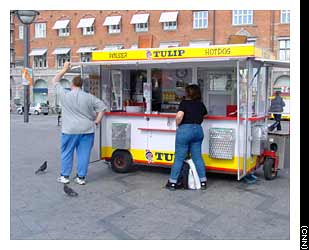Hello guys, I need some help hope you all can help me with this.
So i have 12 little (I don't know what to call them but let's say) stores which are selling the same products (at this time 12). Like hot dogs, cola, gum and other stuff. Every day I am get a slip of paper from each store containing information what and how many products they sold, also how many they got supplied. I attached an image of how it looks. So I have 12 of those every day. So every store is like a little stock too, and besides that I have a big one which delivers to them what they need. I want to make a database which would keep track of:
1. How much of each product was sold, every day and for each store.
2. How much of each product was supplied to them, every day.
3. And of course the revenues and all that.
I was thinking of making some tables like this:
Products
- id
- name
- price
--------------
Stores
- id
--------------
Transactions
- id
- product_id
- store_id
- quantity
- date
but I not sure this is the best way, this doesn't cover the products they receive and what should I do about the totals of sales, calculate or store the somewhere?
Any help would be greatly appreciated.
If something is not clear I can explain in more detail.
Thanks.


